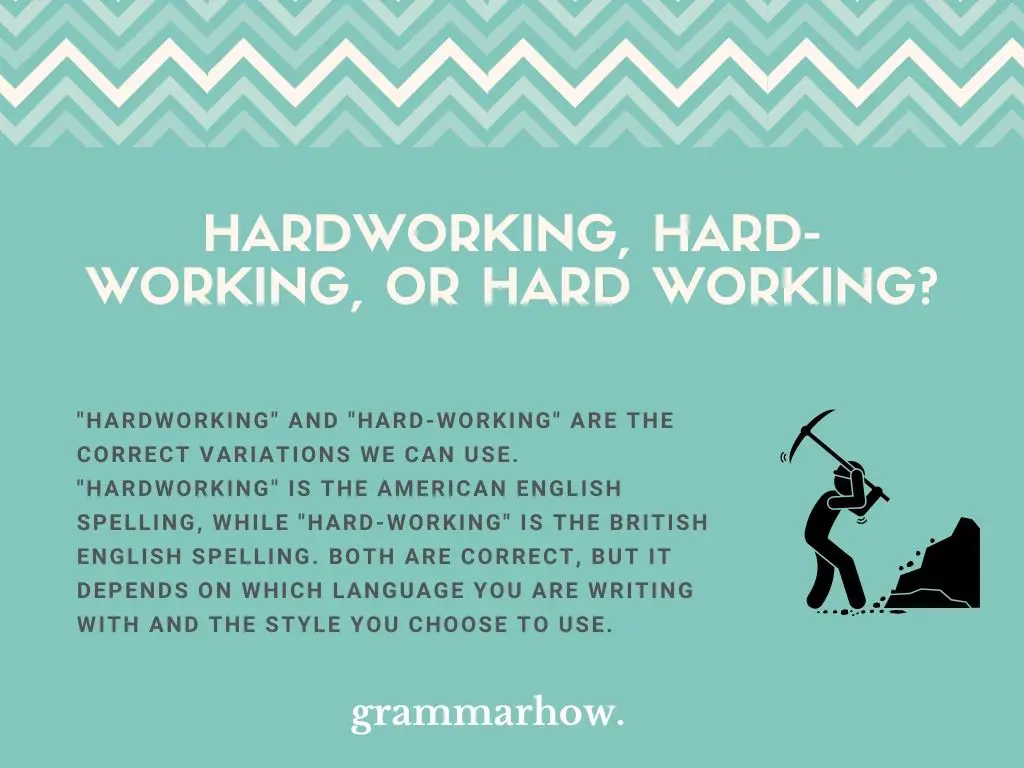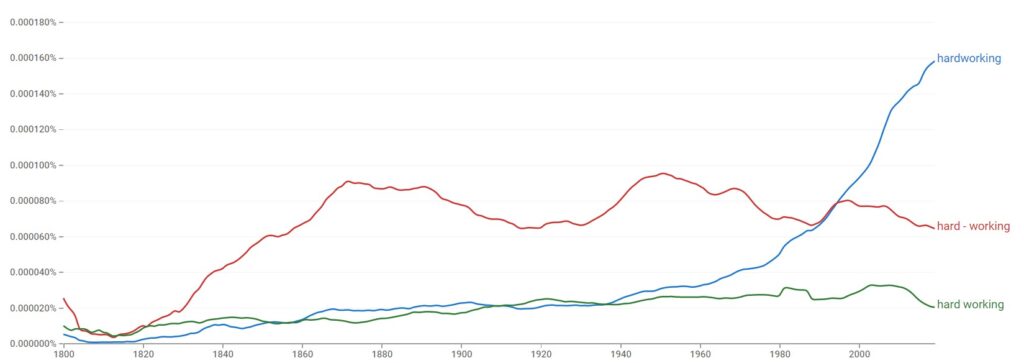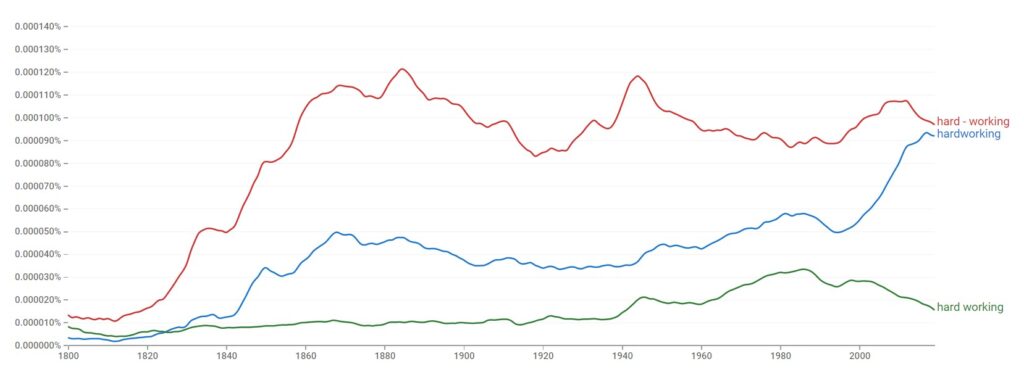“Hard-working” is a popular choice of word in English. However, we need to make sure we know all the rules surrounding it. For example, is it one or two words, and do we keep it hyphenated accordingly? This article will answer all the questions you might have about it.
Hardworking vs. Hard Working vs. Hard-Working
“Hardworking” and “hard-working” are the correct variations we can use. “Hardworking” is the American English spelling, while “hard-working” is the British English spelling. Both are correct, but it depends on which language you are writing with and the style you choose to use.

Since there is a key difference between the spellings based on which language you write with, it’s best to check out the following statistics:
According to Google Ngram Viewer, “hardworking” is the most popular choice in American English. American English tends to drop most hyphens where they think they are redundant.

According to Google Ngram Viewer, “hard-working” is the most popular choice in British English. However, the Americanism “hardworking” is slowly starting to become more popular. It won’t be long before “hardworking” ends up as the most popular choice in both cases.

In The Cambridge Dictionary and The Oxford Dictionary, “hard-working” is recognized as the British English spelling.
Both dictionaries also offer “hardworking” as a suitable alternative when writing in American English. That means that “hardworking” and “hard-working” are both acceptable as an American English spelling variation.
To investigate which spelling is more popular in American English, we can look at which spelling The New York Times uses most:
On their website, we can see that “hard-working” is mentioned 14,700 times while “hardworking” is mentioned 4,470 times. This shows that “hard-working” is more popular in American English, but “hardworking” is still popular.
On the contrary, if we looked at The Daily Mail news site, we get an entirely different set of results:
On their website, we can see that “hard-working” is mentioned 24,700 times while “hardworking” is mentioned 7,380 times. This shows that “hard-working” is the most popular choice by far, and “hardworking” is rarely used comparatively in British English.
Is “Hardworking” One Word?
“Hardworking” is officially recognized as one word when writing in American English. However, it is not an official spelling variation in British English (yet). It’s best to keep it hyphenated when writing in British English to keep it closer to the traditional use.
As we’ve mentioned, with the increasing pressure of American English on British English, there will come a time when “hardworking” is the accepted spelling for both languages.
For now, it works best in American English and you should only use it in these cases.
- The gentlemen are incredibly hardworking, and you should reward them for it.
- These hardworking people have put in a lot of their personal time to make sure you got what you wanted.
- I am hardworking, and I’ll always be the best for you.
- These families are some of the most hardworking groups I’ve come across.
Is “Hard Working” Two Words?
“Hard working” is not typically written as two words. We tend to hyphenate it because it works as a modifier in most sentences. We might also find that we drop the hyphen when we are writing in American English and trying to make it more simple for writers.
To help you see what we mean, look at the following:
- The hard working man
As you can see, “man” is the modified noun in the above example. Therefore, it is not grammatically correct. Instead, we should do something like this:
- The hard-working man
And here are some more examples to help you:
- Correct:I am very hard-working when it counts, and that’s all that matters.
- Incorrect:The hard working employees didn’t come in today.
- Correct:I am a hard-working person, and I deserve this raise.
- Incorrect:You are not as hard working as you seem to think!
Is “Hard-Working” Hyphenated?
“Hard-working” is the official spelling in British English. You can choose between this variation in American English or the unhyphenated one. For the most part, the hyphenated variation is becoming less popular, so it’s likely that it won’t last forever as the popular choice.
- You are very hard-working, which is why I’m looking to promote you.
- I think we should hire the hard-working individual that sent us this message.
- You’re not as hard-working as he is, but you’ll get there.
- I’m the hardest-working man in the room, and I’ll prove to you all why I deserve this job.
Is “Working” Capitalized In The Word “Hard-Working”?
You do not need to capitalize “working” in “hard-working” because it is not a proper noun. However, if you include it as part of a title, you might find that it’s useful to capitalize both parts of the hyphenation if you capitalize all words in your title.
